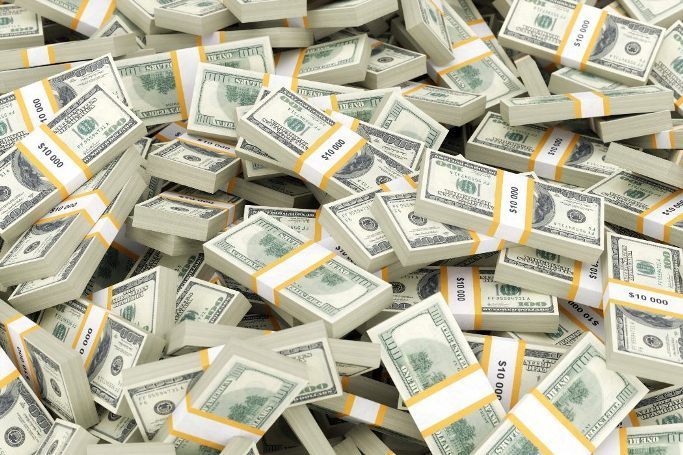Nigeria received $5.85 billion capital importation (inflows) in the first quarter (Q1) of 2020, as against $8.51 billion in Q1 2019. This is according to the latest capital importation report released by the National Bureau of Statistics (NBS).
According to the NBS, the $5.85 billion worth of capital importation in Q1 2020 represents an increase of 53.97% when compared to how much was received in Q4 2019.
However, when compared to the corresponding first quarter period of 2019, the figure indicates a 31.19% decline.
READ ALSO: Nestle releases Q1 2020 result, administrative and distribution expenses drive down profits
Capital Inflow by type
In the first quarter of 2020, the largest amount of capital importation was received through portfolio investment, which accounted for 73.61% ($4.31 billion) of the total capital importation.
Under the portfolio category, investment in money market instruments remains the largest recipient of capital inflows with a total of $3.44 billion, followed by $639.72 million in equity, while investment in bonds stood at $231.22 million.
Foreign Direct Investment (FDI): FDI constituted only 3.66% ($214.25 million) to the total capital inflows. A decline of 16.72% compared to $257.25 million received in Q4 2019 and 13.39% reduction compared to the corresponding quarter of 2019.
READ ALSO: Hike in VAT rate buoys VAT Revenue in Q1 2020
FDI is an investment in the form of a controlling ownership in a business in one country by an entity based in another country.
Other Investments: other investments, which was broken down into four categories contributed 22.73% ($1.33 billion) to the total capital importation in the first quarter of 2020. The inflows through other investments reduced by 19.92% when compared to $1.66 billion received in Q4 2019.
Investment through trade credits in the first quarter of 2020 was $50,000, Loans ($559.79 million), Currency deposits ($820,000) while other claims scooped the highest share of $769.99 million.
READ MORE: Full text of President Muhammadu Buhari’s Letter to Nigerians
Capital inflows by Sectors
A further look into the report shows that the banking sector received the largest portion of capital importation as it constituted 51.08% ($2.99 billion) to the total capital inflows, followed by Financing, which received $1.33 billion (22.77%) in Q1 2020.
Shares followed with $817.38 billion (13.96%), Production $273.97 billion (4.68%) while Telecoms received $157.48 billion (2.69%).
Capital inflows by origin
The United Kingdom remains the biggest source of capital investment in Nigeria. In Q1 2020, investment from the U.K amounted to $2.91 billion, up from $1.19 billion received in Q4 2019 and decline compared to $4.48 billion in Q1 2019.
The top five countries that accounted for the biggest capital inflows in Nigeria within the quarter include U.K ($2.91 billion), South Africa ($692.63 million), UAE ($532.89 million), Netherlands (441.79 million), and U.S ($389.1 million).
